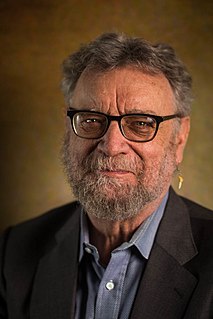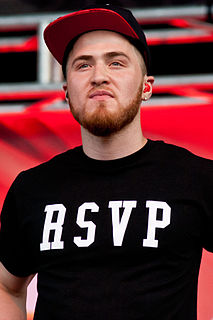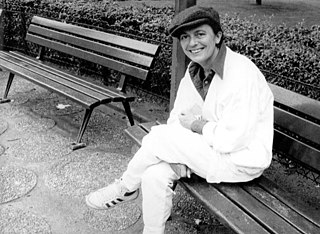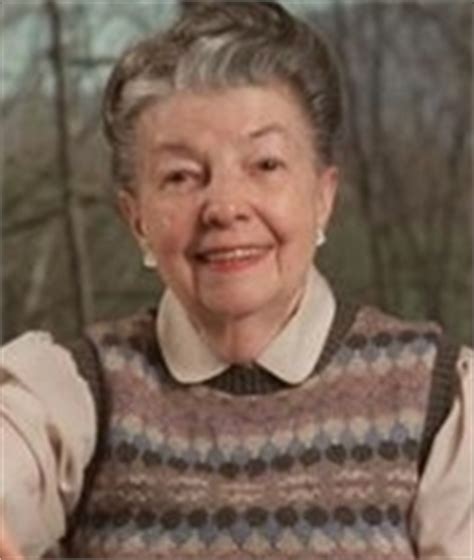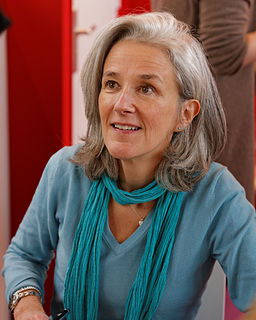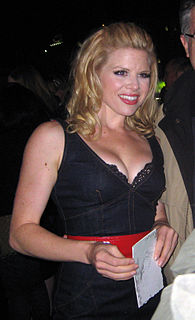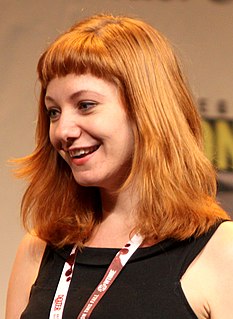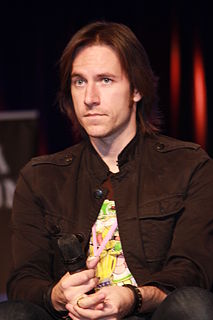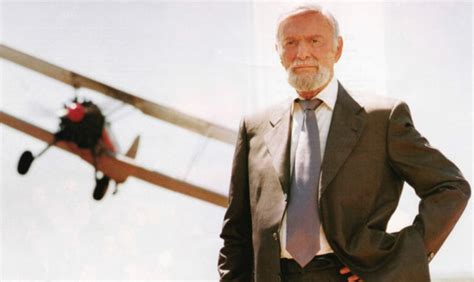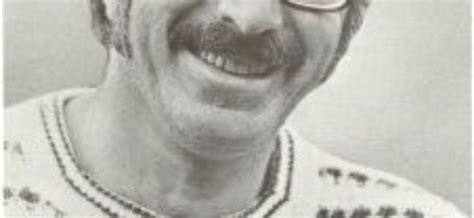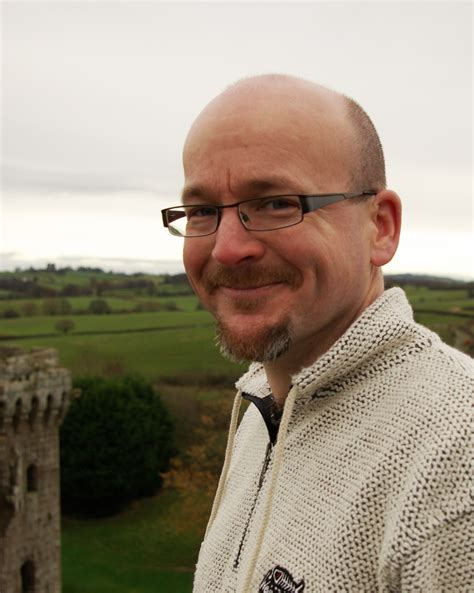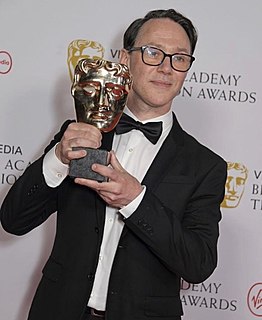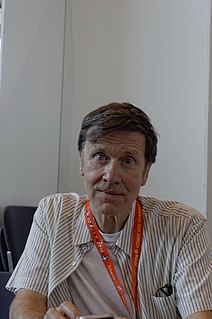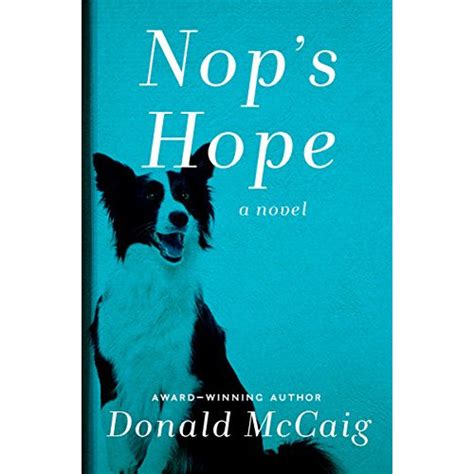Top 1200 Writer Quotes & Sayings - Page 16
Explore popular Writer quotes.
Last updated on December 25, 2024.
When I was fifteen I wrote seven hundred pages of an incredibly bad novel - it's a very funny book I still like a lot. Then, when I was nineteen I wrote a couple hundred pages of another novel, which wasn't very good either. I was still determined to be a writer. And since I was a writer, and here I was twenty-nine years old and I wasn't a very good poet and I wasn't a very good novelist, I thought I would try writing a play, which seems to have worked out a little better.
Gene Wolfe is the greatest writer in the English language alive today. Let me repeat that: Gene Wolfe is the greatest writer in the English language alive today! I mean it. Shakespeare was a better stylist, Melville was more important to American letters, and Charles Dickens had a defter hand at creating characters. But among living writers, there is nobody who can even approach Gene Wolfe for brilliance of prose, clarity of thought, and depth in meaning
Reading, therefore, is a co-production between writer and reader. The simplicity of this tool is astounding. So little, yet out of it whole worlds, eras, characters, continents, people never encountered before, people you wouldn’t care to sit next to in a train, people that don’t exist, places you’ve never visited, enigmatic fates, all come to life in the mind, painted into existence by the reader’s creative powers. In this way the creativity of the writer calls up the creativity of the reader. Reading is never passive.
I think Taylor Swift is a really good artist. I feel like her personality shines through everything she does, her music, her fashion, her style. She won Album of the Year, and she’s a really good writer. I’m a song writer so I respect artists who write their own songs. She won Album of the Year when she was 18 or something like that so, I think she’s dope.
The imagination doesn't crop annually like a reliable fruit tree. The writer has to gather whatever's there: sometimes too much, sometimes too little, sometimes nothing at all. And in the years of glut there is always a slatted wooden tray in some cool, dark attic, which the writer nervously visits from time to time; and yes, oh dear, while he's been hard at work downstairs, up in the attic there are puckering skins, warning spots, a sudden brown collapse and the sprouting of snowflakes. What can he do about it?
I believe a good writer can write a good book with any sort of character, in any sort of setting, but I prefer to write about the outsider. It might just be because I've been one (or perceived myself to be one) for so much of my life. But the simple fact of being marginalized immediately brings conflict to a story before the narrative even begins, and that's gold for a writer because it means that your character already has depth before events begin to unfold.
The irresistible proliferation of graphomania shows me that everyone without exception bears a potential writer within him, so that the entire human species has good reason to go down into the streets and shout: we are all writers! for everyone is pained by the thought of disappearing, unheard and unseen, into an indifferent universe, and because of that everyone wants, while there is still time, to turn himself into a universe of words. one morning (and it will be soon), when everyone wakes up as a writer, the age of universal deafness and incomprehension will have arrived.
The truth about being a writer is you do not choose the stories you tell, but stories choose you. You do not choose, therefore, characters either. Novels are like dreams you dream with your eyes open; they are books which appear in your head with the same apparent immediateness as they appear in your dreams at night. A writer always writes their obsessions and the truth is that all throughout life we end up writing the same thing in different ways.
The whole point about vision is that it's very individual, it's very personal, and it has to be confessional. It has to be something which hurts - the pulling out of it and putting it on the page hurts. Art can be about the individual writer's response to his or her condition, and if that response comes out of a predigested belief about what the audience wants to hear about the writer's condition, then it has no truth, it has no validity. You either write with your own blood or nobody's. Otherwise it's just ink.
Writer’s block is my unconscious mind telling me that something I’ve just written is either unbelievable or unimportant to me, and I solve it by going back and reinventing some part of what I’ve already written so that when I write it again, it is believable and interesting to me. Then I can go on. Writer’s block is never solved by forcing oneself to “write through it,” because you haven’t solved the problem that caused your unconscious mind to rebel against the story, so it still won’t work – for you or for the reader.
Read Becoming a Writer by Dorothea Brande. Then do what it says, including the tasks you think are impossible. You will particularly hate the advice to write first thing in the morning, but if you can manage it, it might well be the best thing you ever do for yourself. This book is about becoming a writer from the inside out. Many later advice manuals derive from it. You don't really need any others, though if you want to boost your confidence, "how to" books seldom do any harm. You can kick-start a whole book with some little writing exercise.
All third world literature is about nation, that identity is the fundamental literary problem in the third world. The writer's identity is insecure because the nation's identity is not secure. The nation doesn't provide the third world writer with a secure identity, because the nation is colonized, it's oppressed, it's part of somebody else's empire.
Make this decision today. Will you be a good and honest writer, or would you rather be famous, loved, noticed? Tell me, because there are different paths for these two divergent goals. The decision to be a true artist is lonelier and slower, but it will lead to better work and, I think, a better life. Very rarely you will be a good and honest writer and also know a little comfort and some attention and the well wishes of a crowd. This is very rare.
You have to understand that people feel threatened by a writer. It's very curious. He knows something they don't know. He knows how to write, and that's a subtle, disturbing quality he has. Some directors without even knowing it, resent the writer in the same way Bob Hope might resent the fact he ain't funny without twelve guys writing the jokes. The director knows the script he is carrying around on the set every day was written by someone, and that's just not something that all directors easily digest.
The act of writing bears something in common with the act of love. The writer, at his most productive moments, just flows. He gives of that which is uniquely himself. He makes himself naked, recording his nakedness in the written word. Herein lies some of the terror which frequently freezes a writer, preventing him from producing. Herein, too, lies some of the courage that must be entailed in letting others learn how one has experienced or is experiencing the world.
The very act of writing assumes, to begin with, that someone cares to hear what you have to say. It assumes that people share, that people can be reached, that people can be touched and even in some cases changed. So many of the things in our world lead us to despair. It seems to me that the final symptom of despair is silence, and that storytelling is one of the sustaining arts; it’s one of the affirming arts. A writer may have a certain pessimism in his outlook, but the very act of being a writer seems to me to be an optimistic act.
I think challenges are what any decent writer would be all about. If you actually do find your slide and grease it, shame on you. Me, I get bored very easily. As a writer I get bored even faster than I do in real life. I mean, I like fast cars; I've driven a lot of racecars. You need some stimulation. If I find something that seems too difficult to do, too difficult to research, or beyond your writing abilities, it's a perfect invitation to try it.
It wasn't a case of me sitting down and thinking, right then, what shall I do with my life? Airline pilot? Plumber? Guitar manufacturer? Writer .... yeah, writer. I've always loved writing, from a very early age--I guess I was writing my first stories when I was still in single digits. It progressed, and the love of writing grew in my mind and is still growing. Doing it full-time, there are different stresses and tensions, and the business side of it comes to the fore sometimes. But I still love it, and I'm always thankful that I can do what I do and make a living from it.
Learn a lot about the world and finish things, even if it is just a short story. Finish it before you start something else. Finish it before you start rewriting it. That's really important.
It's to find out if you're going to be a writer or not, because that's one of the most important lessons.
Most, maybe 90% of people, will start writing and never finish what they started. If you want to be a writer that's the hardest and most important lesson: Finish it. Then go back to fix it.
Audiences are very sophisticated and they know the nuts and bolts of the genre - certainly with horror more than others I think. But they attract lots of people, they're much derided as a genre but people go and see them and they're not all dumb. There's some very clever horror films. Stephen King gets a lot of flack for not being a proper writer because he's a horror writer, but I think he writes some brilliant books. I think it's wrong to just bin it before looking at it.
The strange, wonderful stories of Doctor Olaf van Schuler's Brain introduce us to the tremendously gifted Kirsten Menger-Anderson, a writer whose subject is nothing less than the diagnosis and cure of the human malady. We follow twelve generations of New York City's Steenwycks family through their forays into phrenology, mesmerism, radium therapy and similar misadventures, a historically rich narrative that Menger-Anderson delivers in striking, elegant prose and with a sure eye for detail. This is a remarkable debut by a writer to watch.
That's really the essence of what any fiction writer does. Some of it is research-based, but most of it is a really long-term, imaginative, empathetic effort to see the world the way someone whose experiences remote from yours might see it. Not every writer works that way; some writers make a wonderful career out of writing books that adhere very closely to how they view the world. The further I go with this, the more interested I get in trying to imagine my way into other perspectives that at first seem foreign to me.
I write a lot and I will have some originals on the record. I think it is a mistake for an artist like me to think I am a better writer than Cole Porter. I think it is important to realize what my strengths are. I do like to write and I'm not shabby but I don't think I'm the most brilliant writer. I think it would be a shame and sort so egotistical to say I don't need these wonderful writers. These men created works of art and wrote hundreds of beautiful songs. It would be a mistake for me to say at this point in my career that I am so good.
The flimsy little protestations that mark the front gate of every novel, the solemn statements that any resemblance to real persons living or dead is entirely coincidental, are fraudulent every time. A writer has no other material to make his people from than the people of his experience ... The only thing the writer can do is to recombine parts, suppress some characterisitics and emphasize others, put two or three people into one fictional character, and pray the real-life prototypes won't sue.
No writer, I believe, should attempt a novel before he is thirty, and not then unless he has been hopelessly and helplessly involved in life. For the writer who goes out to find material for a novel, as a fishermen goes out to sea to fish, will certainly not write a good novel. Life has to be lived thoughtlessly, unconsciously, at full tilt and for no purpose except its own sake before it becomes, eventually, good material for a novel.
One wouldn't want to say that what makes a good writer is the number of books that the writer wrote because you could write a whole number of bad books. Books that don't work, mediocre books, or there's a whole bunch of people in the pulp tradition who have done that. They just wrote... and actually they didn't write a whole bunch of books, they just wrote one book many times.
As soon as I start to write I'm very aware, I'm trying to be aware that a reader just might well pick up this poem, a stranger. So when I'm writing - and I think that this is important for all writers - I'm trying to be a writer and a reader back and forth. I write two lines or three lines. I will immediately stop and turn into a reader instead of a writer, and I'll read those lines as if I had never seen them before and as if I had never written them.
My literary criticism has become less specifically academic. I was really writing literary history in The New Poetic, but my general practice of writing literary criticism is pretty much what it always has been. And there has always been a strong connection between being a writer - I feel as though I know what it feels like inside and I can say I've experienced similar problems and solutions from the inside. And I think that's a great advantage as a critic, because you know what the writer is feeling.
Two kinds of reading can be distinguished. I call them reading like a reader and reading like a writer ... when you read like a reader, you identify with the characters in the story. The story is what you learn about. When you read like a writer, you identify with the author and learn about writing.
I still have a suspicion of charity and think the state has a role to play in many areas. And although for most of the years since I have been a rather privileged writer, I identify more closely than perhaps I should with those social workers. Had I not become a writer that would have been me. Lots of our friends are still in that world and I do feel part of that generation of people who were rather idealistic in the 70s and became disillusioned in the 80s. Not just about social services issues, but the world.
It's not a matter of whether the reviews of your books are good or bad, it's about being taken seriously, both as a woman writer and as a writer of color. Also, it worries me when people point to a couple of women writers or writers of color who get some attention - and I am sometimes pulled into that category - to prove that others are getting a fair shot. It's like those people who keep saying that racism no longer exists in this country because Barack Obama was a President of the United States.
In this day and age, if you're aspiring to be an actor, and you're putting all your eggs in one basket, you could be disappointed. I started out as an actor, but I forced myself to be a writer, even though I wasn't very good at it and had never written. I don't think I ever passed an English course in my life. My first 8 to 10 scripts were pretty horrendous, but I stayed at it until I eventually found a voice and a subject that people were interested in. So, I recommend that you go out and try to be as versatile as possible: writer, actor, producer and especially director.
The human race may be compared to a writer. At the outset a writer has often only a vague general notion of the plan of his work, and of the thought he intends to elaborate. As he proceeds, penetrating his material, laboring to express himself fitly, he lays a firmer grasp on his thought; he finds himself. So the human race is writing its story, finding itself, discovering its own underlying purpose, revising, recasting a tale pathetic often, yet none the less sublime.

